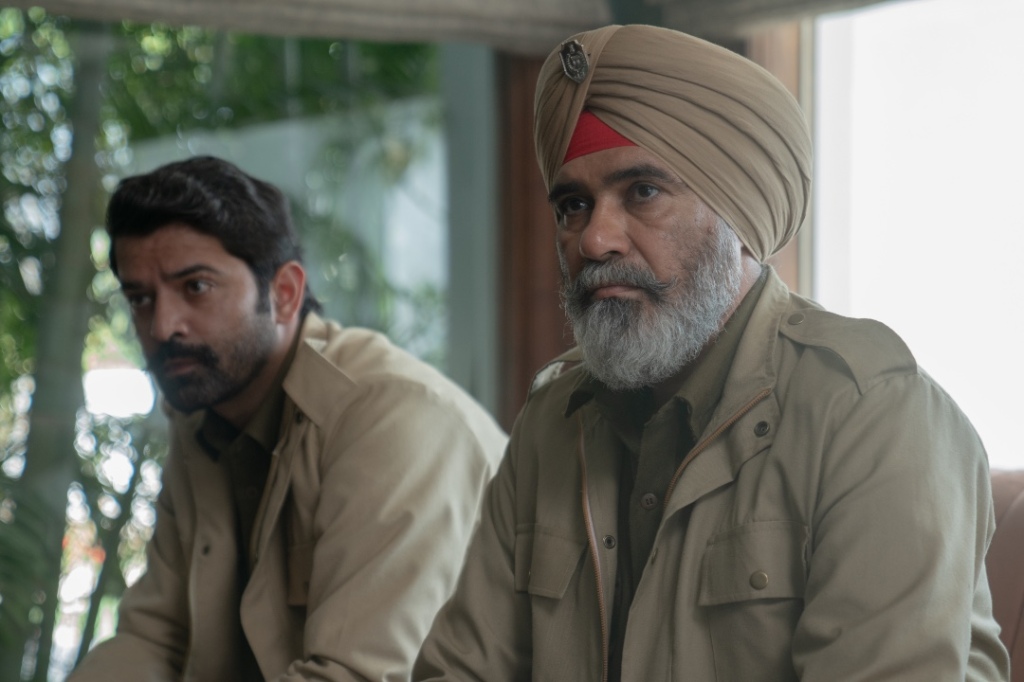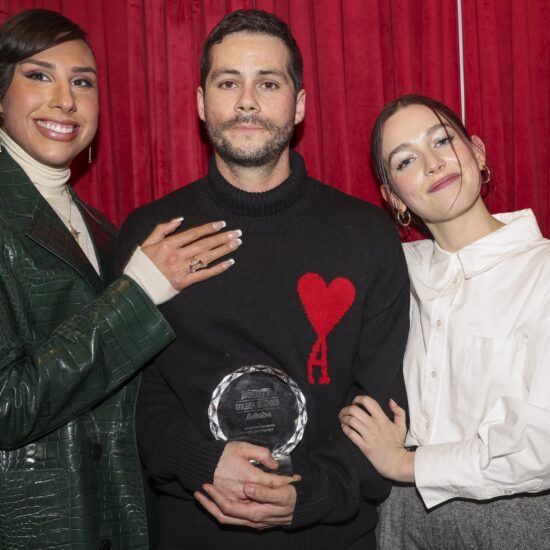
Since launching on Netflix on July 15, Indian crime drama Kohrra has shot to the top of the streamer’s Indian rankings and had critics, audiences and industry figures including Karan Johar raving about the show.
In addition to describing it as an atmospheric murder mystery, local critics have praised the series for being an incisive portrait of contemporary Punjab, the northwestern Indian state where it is set.
The six-part series follows two cops – played by Suvinder Vicky and Barun Sobti – investigating the murder of an NRI (non-resident Indian) who lives in London but has travelled to India for an arranged marriage. After he’s found dead in a field, with the British friend who had accompanied him also missing, the cops start to unravel not just a murder case, but a complex web of family secrets, land-related power plays, childhood trauma and parental patriarchy.
Randeep Jha, who also directed critically acclaimed drama Trial By Fire, directed the series, which is produced by Clean Slate Films and also stars Manish Chaudhary, Varun Badola, Amaninder Pal Singh, Aanand Priya, Arjuna Bhalla, Harleen Sehti and British actress Rachel Shelley.
Showrunner Sudip Sharma, who worked with writers Gunjit Chopra and Diggi Sisodia on the series, is no stranger to hardboiled crime drama as he also created investigative thriller Paatal Lok, one of India’s most critically acclaimed shows. He also knows Punjab as his credits include co-writing Abhishek Chaubey’s 2016 feature film Udta Punjab, a crime drama revolving around the state’s drugs trafficking industry.
Sharma tells Deadline that when Chopra and Sisodia approached him with the project, he wasn’t sure if he wanted to do another crime drama so soon after Paatal Lok, but saw the potential in their idea. “It was so nuanced, because Gunjit had spent a lot of time in Punjab, and I’d already written one film there, but felt I’d only scratched the surface and there was a lot more to explore in terms of the land and the culture.”
Arjuna Bhalla and Rachel Shelley in Kohrra
Home to India’s Sikh community, Sharma explains that Punjab “has a culture of its own, a religion and politics of its own, and a language of its own – what’s fascinating about India is that so many regions have their own distinct subcultures.”
As a frontier state, Punjab has historically been known as a ‘land of warriors’, as it was always first in line to repel invaders, although the unfortunate downside to that border status has been the drugs trade and patriarchy. However, Sharma says he also finds it a place where “the women stand up for themselves and have a lot of agency, something we’ve tried to reflect in the story of Kohrra, especially towards the end.”
In contemporary times, the relatively wealthy state is also known as the homeland of affluent NRI communities in the U.S. and UK and for having a huge influence on Bollywood and the global music scene through its pop culture and musicians.
Kohrra refers to those connections with the West through scenes set in London and by giving a fairly pivotal role to Shelley, known for her roles in The L Word, Casualty and Indian feature Lagaan, who plays the mother of the missing Brit. “I wanted a British actor who has a successful career in the West, but also understands what it means to shoot in India,” Sharma says smiling. “She fit the profile perfectly – a great actor who can deal with the madness.”
Meanwhile, Indian critics have been raving about the performances of the Punjabi cast – in particular Vicky as the older cop, whose character has a complex backstory also involving passion and patriarchy. Sharma says that, in order to keep the show authentic, he wanted to shoot on location in Punjab, using local actors and the Punjabi language (Hindi and other language dubs are available on Netflix).
“We have a few actors from Bombay, but all who can speak Punjabi. Fortunately, Punjab has a very vibrant local film and TV industry,” Sharma explains. “Our casting director Nikita Grover was in Punjab for three months scouting local actors, theatre centers and colleges and did a great job.”

Sudip Sharma on the set of Kohrra
Sharma was one of the first film writers in India to morph into the role of writer-showrunner, still a relatively rare occupation in India, although more are starting to emerge.
“Long-form quality storytelling is still relatively new in India – we were all just thrown into the fire and had to learn by watching our idols,” says Sharma, citing U.S. shows like The Sopranos and The Wire as an early inspiration. “We’re still understanding what showrunning means, specifically in the Indian context, because it’s always been such a director-led industry.”
Since he started writing Paatal Lok in 2016 (the show streamed on Prime Video in 2020), Sharma says he’s seen the platforms in India evolve from an “anything goes” mentality, to scrambling over the censorship clampdown following the controversy over Prime Video’s Tandav in 2021, to becoming much more selective and focusing on specific genres.
“A lot of crime dramas are getting made, and not all of them are engaging, but the data is pushing that and I think we’re starting to see bit of audience fatigue,” Sharma observes. “The other focus right now is young adult content, so when you meet executives from the platforms, they’ll be asking if you have anything in young adult.”
He adds that the current censorship climate has made it “difficult to tell larger socio-political stories” on Indian platforms, although he’s currently editing a second series of Paatal Lok, which Prime Video is planning to stream next year. Kohrra skirts censorship issues by talking about society through the context of family dynamics, rather than state or national politics.
However, he says that this was also a creative choice, as he’s drawn to detailed character development, and wanted to explore those aspects of writing, rather than just big concept or plot-driven drama. “I’m a big fan of UK detective series like Broadchurch, Happy Valley and Shetland – they really tread that line where American crime dramas sometimes fail of being able to hold plot and character together.”
With a background in management and business studies, Sharma has experience in project management, something which he believes has helped him develop as a showrunner. He also occasionally works as a creative producer on projects such as Netflix series Mai.
“We really need to train writers into showrunning in this country because they’ve been so removed from the filmmaking process in the past,” says Sharma. “Once that happens, we’ll see a big change in the quality of content coming out.”
Sharma is also starting to look beyond India by developing shows that he’s pitching to international players. Through his association with Tulsea, the Mumbai and Los Angeles-based talent agency that reps him, he’s also been working as a consulting and/or executive producer on India-themed international shows with producers including Sister Pictures.
“We haven’t had a series that can travel the way Narcos or Squid Game did, but as we develop our capabilities, we should be able to do that,” he says. “The ecosystem lacks a bit of ambition around here. We’re happy making shows for local audiences, probably because it’s a big enough market. But I really believe we can aim higher than that.”














